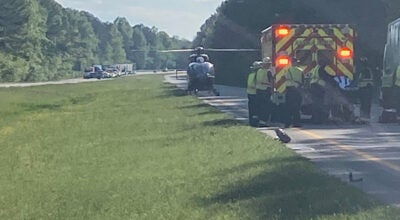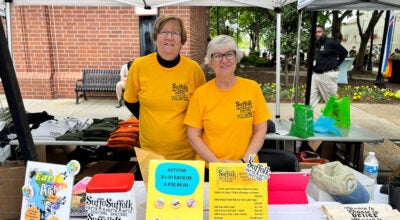KFHS allowed to go mobile
Published 9:26 pm Friday, October 12, 2012
Student cellphone use at King’s Fork High will continue through at least the end of 2012, but the issue divided Suffolk’s School Board members Thursday.
With Phyllis Byrum absent due to a family emergency, board members Michael Debranski, Linda Bouchard, Diane Foster and Lorraine Skeeter voted at the board’s monthly meeting to extend the in-classroom use by King’s Fork students of cellphones and other electronic devices.
After a last-minute move by Chairman Debranski to alter a recommendation by administrators to extend the practice at King’s Fork for the rest of the school year, it will now continue through Jan. 1. before a re-evaluation.
Enoch Copeland and board Vice Chair Thelma Hinton both voted against loosening the rules, arguing it could lead to rowdy classrooms and result in privacy issues, a concern Bouchard also said had been raised with her by teachers.
Hinton contended the practice would make computers, on which district Superintendent Deran Whitney said “just under” $600,000 has been spent this year, obsolete.
At their discretion, King’s Fork High teachers, under a pilot introduced by principal Suzanne Rice, have been allowing classroom cellphone use for learning purposes since the beginning of the school year.
After Hinton brought it to their attention, board members approved a one-month extension of the pilot at their September meeting.
In a prepared speech, Rice told Thursday’s meeting that “the basic premise” of her decision to introduce the pilot was “based upon the fact that schools need to change the way we do business in order to prepare our students for the jobs and careers of not just today, but those we don’t even know exist yet.”
She described the results so far as positive, saying that while September 2011 saw nine cellphone violations, “this September we had none.”
“We are in the process of visiting classrooms to review the policy with students, so they know it is not a use-at-will concept,” she said, adding that “ground rules” include using only one ear bud during transition and none in the cafeteria line, and students cannot leave the classroom to make a call.
While Rice said her educators support the pilot, Hinton said she has fielded concerns from both teachers and parents, adding, “If a fight or something breaks out, they feel as if they will be on YouTube.”
“Not only that, I’m concerned … (that) we have computers in the classrooms” which will sit idle, Hinton continued. Rice rejected the suggestion, saying that cellphones will help overcome a lack of computers and laptops.
Copeland said it would be “contradictory” to allow students to use devices at school while cellphones are banned from courtrooms and often can’t be used in doctors’ waiting rooms.
He wondered whether high school students are mature enough, and wanted to know if math scores would improve and how it would affect discipline.
Skeeter declared the King’s Fork pilot “a great idea,” adding, “This is what we have asked administrators and principals to do — to step outside of the box.”






